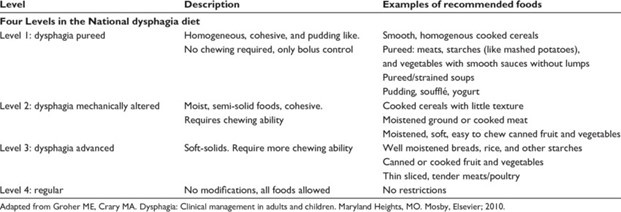A nurse is selecting food items for a client who follows a lacto-vegetarian diet. Which of the following foods should the nurse include in the meals?
Shrimp
Hamburger
Cheese
Eggs
The Correct Answer is C
A lacto-vegetarian diet is a type of vegetarianism that excludes meat, poultry, seafood, and eggs, but includes dairy products, such as milk, cheese, and yogurt. Therefore, the foods that the nurse should include in the meals for a client who follows a lacto-vegetarian diet are cheese and yogurt.
Shrimp and hamburger are not suitable for a lacto-vegetarian diet because they are animal flesh.
Eggs are also not allowed because they are animal products.
Nursing Test Bank
Naxlex Comprehensive Predictor Exams
Related Questions
Correct Answer is A
Explanation
In teaching about dietary guidelines to promote cardiovascular health, the nurse should include the recommendation to increase the intake of whole grains. Whole grains, such as whole wheat, brown rice, oats, and quinoa, are rich in fiber, vitamins, minerals, and phytochemicals that are beneficial for cardiovascular health. They can help lower cholesterol levels, improve blood sugar control, and reduce the risk of heart disease.
The other choices are incorrect:
Increasing the intake of refined carbohydrates is not a recommended recommendation for promoting cardiovascular health. Refined carbohydrates, such as white bread, white rice, and sugary snacks, have been associated with an increased risk of heart disease. They are often low in fiber and can cause spikes in blood sugar levels, leading to poor cardiovascular health outcomes.
Decreasing the intake of potassium is also not a recommended recommendation. Potassium is an essential mineral that plays a vital role in maintaining heart health and blood pressure regulation. Adequate intake of potassium-rich foods, such as bananas, avocados, spinach, and sweet potatoes, can help lower blood pressure and reduce the risk of cardiovascular diseases.
Decreasing intake of omega-3 fatty acids is incorrect as well. Omega-3 fatty acids, found in fatty fish (such as salmon, mackerel, and sardines), flaxseeds, chia seeds, and walnuts, have been shown to have numerous cardiovascular benefits. They can help reduce inflammation, lower triglyceride levels, improve heart rhythm, and decrease the risk of heart disease. Therefore, it is important to include omega-3 fatty acids in the diet for optimal cardiovascular health.
Correct Answer is C
Explanation
A level 1 dysphagia diet, also known as a pureed diet, is recommended for individuals with severe swallowing difficulties. It involves pureeing or blending all foods to a smooth consistency to facilitate swallowing and prevent choking.
● Chicken noodle soup: This option typically contains solid ingredients such as chicken, noodles, and vegetables, which are not suitable for a level 1 dysphagia diet. The client may have difficulty swallowing these solid components.
● Apple juice: Liquids, including apple juice, are generally not included in a level 1 dysphagia diet as they require minimal swallowing effort. However, it is essential to consult a speech-language pathologist or dysphagia specialist regarding the client's specific liquid consistency recommendations.
● Pudding: Pudding is an ideal choice for a level 1 dysphagia diet as it can be easily pureed to a smooth consistency that is safe for swallowing. It provides a creamy and soft texture that is easier for individuals with dysphagia to manage.
● Milk: Milk is not typically recommended for a level 1 dysphagia diet as it is a liquid and requires minimal swallowing effort. Similar to apple juice, specific liquid consistency recommendations should be sought from a dysphagia specialist.

Whether you are a student looking to ace your exams or a practicing nurse seeking to enhance your expertise , our nursing education contents will empower you with the confidence and competence to make a difference in the lives of patients and become a respected leader in the healthcare field.
Visit Naxlex, invest in your future and unlock endless possibilities with our unparalleled nursing education contents today
Report Wrong Answer on the Current Question
Do you disagree with the answer? If yes, what is your expected answer? Explain.
Kindly be descriptive with the issue you are facing.
